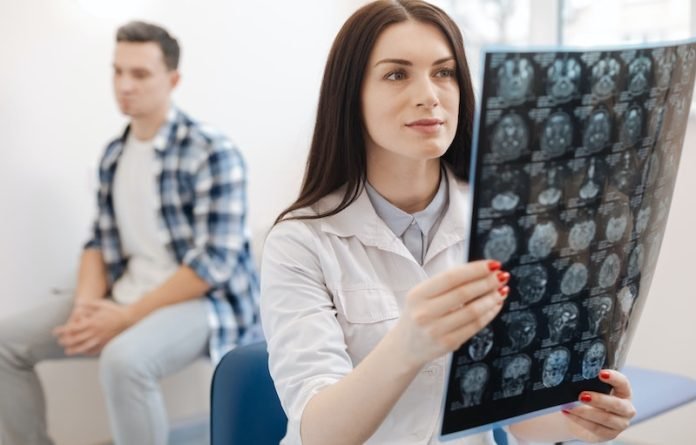
Although the coronavirus known as SARS-CoV-2 does not infect nerve cells, it can cause damage to the nervous system.
In a study from the University of Basel and elsewhere, scientists found the mechanisms responsible for this effect, known as “neuro-COVID” and identified starting points for its prevention.
It’s not uncommon for people to lose their sense of taste and smell due to a COVID-19 infection.
In others, the disease has had an even stronger impact on the nervous system, with effects ranging from lasting concentration problems to strokes.
In the study, researchers examined how different severities of neuro-COVID can be detected and predicted by analyzing the cerebrospinal fluid and blood plasma of affected individuals.
Their findings also offer some indications of how to prevent brain damage due to COVID-19.
The study included 40 COVID-19 patients with differing degrees of neurological symptoms.
In order to identify typical changes associated with neuro-COVID, the team of researchers compared these people’s cerebrospinal fluid and blood plasma with samples from a control group.
They also measured the brain structures of test subjects and surveyed participants 13 months after their illness in order to identify any lasting symptoms.
Particularly in the group with the most serious neurological symptoms, the researchers found a link with an excessive immune response.
On the one hand, affected people showed indications of impairment of the blood-brain barrier, which the researchers speculate was probably triggered by a “cytokine storm”—a massive release of pro-inflammatory factors in response to the virus.
On the other hand, the researchers also found antibodies that targeted parts of the body’s own cells—in other words, signs of an autoimmune reaction—as a result of the excessive immune response.
They also identified excessive activation of the immune cells specifically responsible for the brain—the microglia.
The researchers also found that people with serious neuro-COVID symptoms had a lower brain volume than healthy participants at specific locations in the brain and particularly at the olfactory cortex—that is, the area of the brain responsible for the smell.
The team hopes to develop a blood test that can already predict serious cases, including neuro-COVID and long COVID, at the start of an infection.
If you care about COVID, please read studies about how vitamin B may help fight COVID-19, and mouthwashes may suppress COVID-19 virus.
For more information about COVID, please see recent studies that new antiviral drug may block COVID-19 transmission, and results showing these antioxidants could help reduce dementia risk.
The study was conducted by Professor Gregor Hutter et al and published in Nature Communications.
Copyright © 2022 Knowridge Science Report. All rights reserved.



